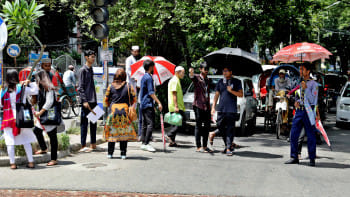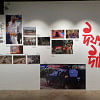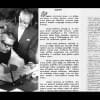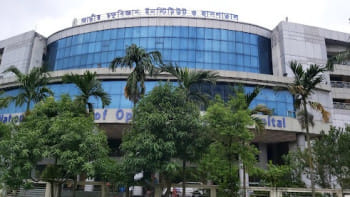Let people, not political parties, decide interim govt’s role

Bangladesh witnessed an unprecedented people's revolution led by students which culminated in the fall of the Awami League government and the formation of an interim government. An important outcome of the July movement points to the abject failure of the political parties in the last 15 years to instigate a people-led upsurge to topple the Awami League government as citizens were disgruntled with the political parties and overall political system. On the other hand, an important social issue raised by students gained the resounding support of citizens to depose the mighty Awami League government within a month. There is a powerful sense of freedom in Bangladesh now.
Before the formation of the interim government, some decisions and demands of the major political parties caught my attention. The Bangladesh Nationalist Party's (BNP) decision to hold an assembly on August 7, was very immature. They should have waited till the formation of the interim government and restoration of law and order. We also saw a large rally by Bangladesh Jamaat-e-Islami which could have been avoided. Meanwhile, we noticed demands for early elections, and enquiry about the interim government's timeframe, legality, and agenda. I was not surprised by these decisions and demands of our major political parties since their ultimate motive is to be in power and unfortunately not to realise the real aspirations of the crores of Bangladeshi. However, some political individuals are in favour of giving the interim government a certain time to carry out fundamental reforms, the absence of which made the country dysfunctional.
There is a fundamental difference between a "caretaker" government and an "interim government." I believe we have a definition of the "caretaker" government but not an "interim" government. The 13th amendment to the Constitution of Bangladesh, which included provisions for a caretaker government to conduct general elections and transfer power impartially, was passed in 1996. This amendment added a new chapter, Chapter IIA: Non-Party Caretaker Government, in part IV of the constitution. Three elections were held under the caretaker system which was abolished by a constitutional amendment on June 30, 2011.
The question is: who will delineate the definition of the "interim" government? The answer is simple—the people of Bangladesh. The next question is how can this be done? The answer also lies with the people of Bangladesh.
The interim government should call for a plebiscite within the next three months along with a clearly thought-out reform agenda and estimated timeframe to achieve them. According to Britannica, a plebiscite is a "vote by the people of an entire country or district to decide on some issue, such as choice of a ruler or government, option for independence or annexation by another power, or a question of national policy." Generally in a plebiscite, voters are asked not to choose between alternate regimes or proposals but to confirm or reject the legitimacy of a certain form of government or course of action. More importantly, through plebiscites a government can reach people directly, bypassing intermediaries such as political parties for people's mandate on important issues such as the legitimacy of a government.
The list of the reforms should be quite large ranging from constitutional reforms to institution building. Some of the top agendas should include reviewing and rewriting the constitution to align with citizens' welfare and protection; revamping the electoral system to curb the influence of families to instil democracy within the parties' selection of nominees and leaders and pave the way for dedicated politicians; restoration of a transparent administration which is accountable to citizens; establishment of an efficient, inclusive and just judiciary system; and setup of a modern economic system focusing on efficiency and equity.
If I understand the mood of the citizens of our country correctly, people are ready to give adequate time to the current interim government as they regard it as their saviour, liberator, and the only institution that would fulfil their dreams.
Dr Bazlul H Khondker is chairman at South Asian Network on Economic Modeling (Sanem) and former faculty member of the University of Dhaka. He can be reached at [email protected]
Views expressed in this article are the author's own.
Follow The Daily Star Opinion on Facebook for the latest opinions, commentaries and analyses by experts and professionals. To contribute your article or letter to The Daily Star Opinion, see our guidelines for submission.


 For all latest news, follow The Daily Star's Google News channel.
For all latest news, follow The Daily Star's Google News channel. 










Comments